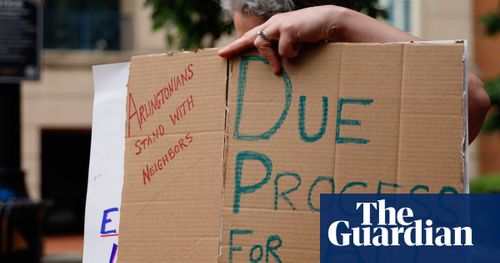Trump administration slams Boston federal judge for preventing deportations


The ruling marks the third time that courts have ordered the administration to try to bring back deportees who were found to have been improperly or illegally deported. So far, however, the administration has not cooperated in returning the immigrants to the U.S. so they can receive the due process that, according to the courts, is legally required. Friday’s ruling from U.S. District Judge Brian Murphy concerns a Guatemala native, identified in court papers only as O.C.G., who claims he had been raped and targeted for being gay during a previous stint in Mexico. His lawyers say he was not given a chance to assert those fears when the Trump administration put him on a bus in February and delivered him across the border. Mexican authorities then deported him to Guatemala, where he has also faced threats of persecution and violence.

A federal judge ordered the Trump administration to facilitate the return of a third improperly deported man late Friday, saying his removal likely “lacked any semblance of due process.” The administration removed the Guatemalan man, identified as O.C.G. in court filings, to Mexico despite his fear of persecution after being held for ransom and raped there. Initially, the Justice Department told the court that the man had affirmatively stated to authorities he had no fear of being sent to Mexico, only to retract the claim as an “error” last week. “No one has ever suggested that O.C.G. poses any sort of security threat,” U.S. District Judge Brian Murphy wrote in his 14-page ruling.

The ruling marks the latest instance of a judge ordering President Donald Trump’s administration to facilitate the return of a migrant swept up in the Republican’s efforts to carry out mass deportations as part of his hard-line immigration agenda, following a mistake in an individual’s case. In a class action lawsuit filed by OCG and other migrants, the judge had blocked the administration from swiftly deporting people to countries other than their own without first hearing any concerns they had about their safety. “Due process is, in some sense, a binary – one either receives what the Constitution requires, or one does not,” Murphy wrote. “It has been clear that OCG. did not receive what the Constitution requires.”











